“They stole my face,” shouts a ten-year-old boy proper right into a microphone, sooner than stomping away.
We’re throughout the Rafael Lozano-Hemmer exhibition Atmospheric Memory on the Powerhouse in Sydney. The boy’s {{photograph}} was taken as shortly as he entered the exhibition after which publicly projected onto his shadow.
Identical to the social media it replicates, the exhibition content material materials is a product of its prospects – which can actually really feel like theft.
The precept exhibition room, Atmospheres, includes numerous completely completely different works along with a water-spray wall. The mist coming from the wall is a response to changes throughout the focus of carbon dioxide throughout the setting over time. It varieties cloud-like seen texts every time viewers members converse proper right into a microphone.
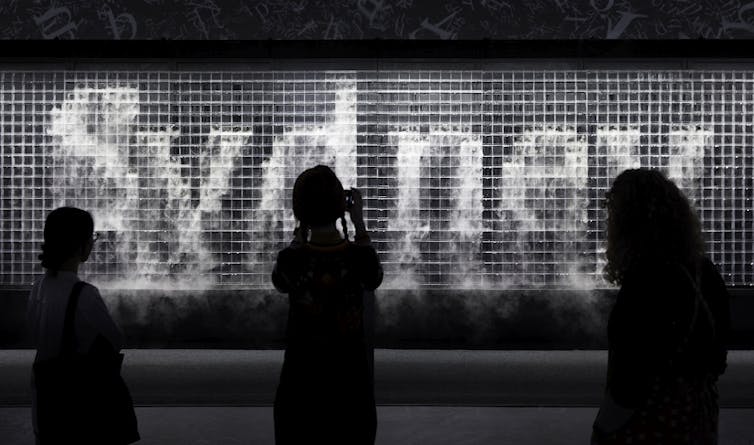
On the partitions and floor of the first exhibition room, there are projected outsize images – a transferring feast of textual content material and data. These images and data characterize the chaos of the digital world and the ubiquity of digital monitoring utilized sciences in metropolis environments.
All this digital imagery and scrambled textual content material is a bit manic and unsettling.
Just a few of those elements from the Mexican-Canadian artist Lozano-Hemmer have been individually exhibited in Australia and internationally sooner than. Nevertheless launched collectively, the frenetic train of so many competing elements in a single room compromises their explicit particular person influence, significantly as some recording elements weren’t engaged on the day.
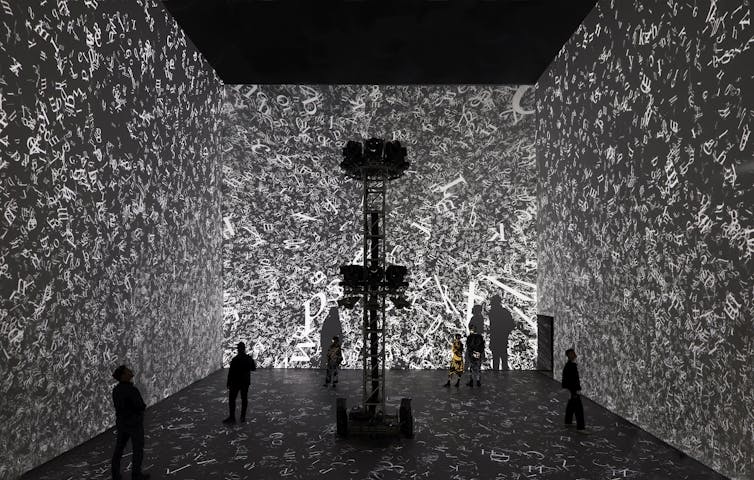
Themes of surveillance
The precept work throughout the exhibition is called Zoom Pavilion. A tower helps 24 robotic cameras, which monitor friends as we enter the home and report our look to the projectors, throwing our images onto the bottom and the partitions spherical us.
This work is a collaboration between Lozano-Hemmer and the pioneering Polish projection artist Krzysztof Wodiczkoand presents Wodiczko’s well-known theme of surveillance.
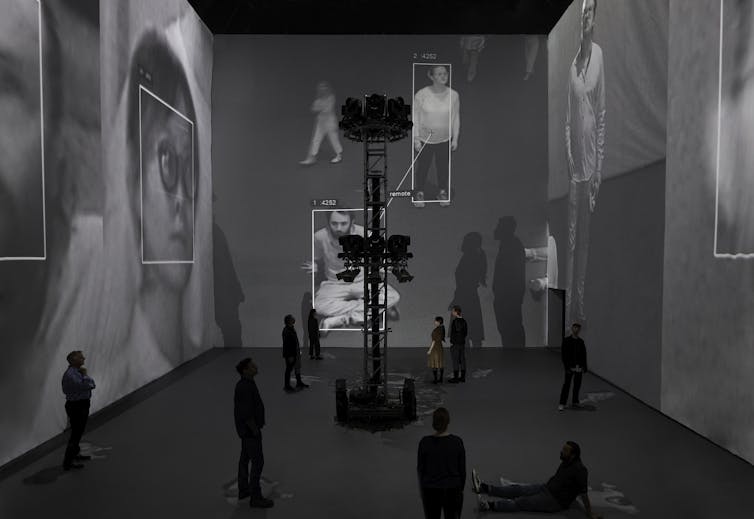
Be taught further:
Not Giant Brother, nonetheless shut: a surveillance skilled explains among the many strategies we’re all being watched, frequently
Any such paintings is what Lozano-Hemmer calls “relational construction”, invoking the ideas of engagement and social experimentation (the “relational”) and the constructed ambiance.
He has moreover described these works as “platforms for public participation” and “technological theatre”: artworks that try to extend public home with gigantic interactive projections designed to hold people collectively in a playful method.
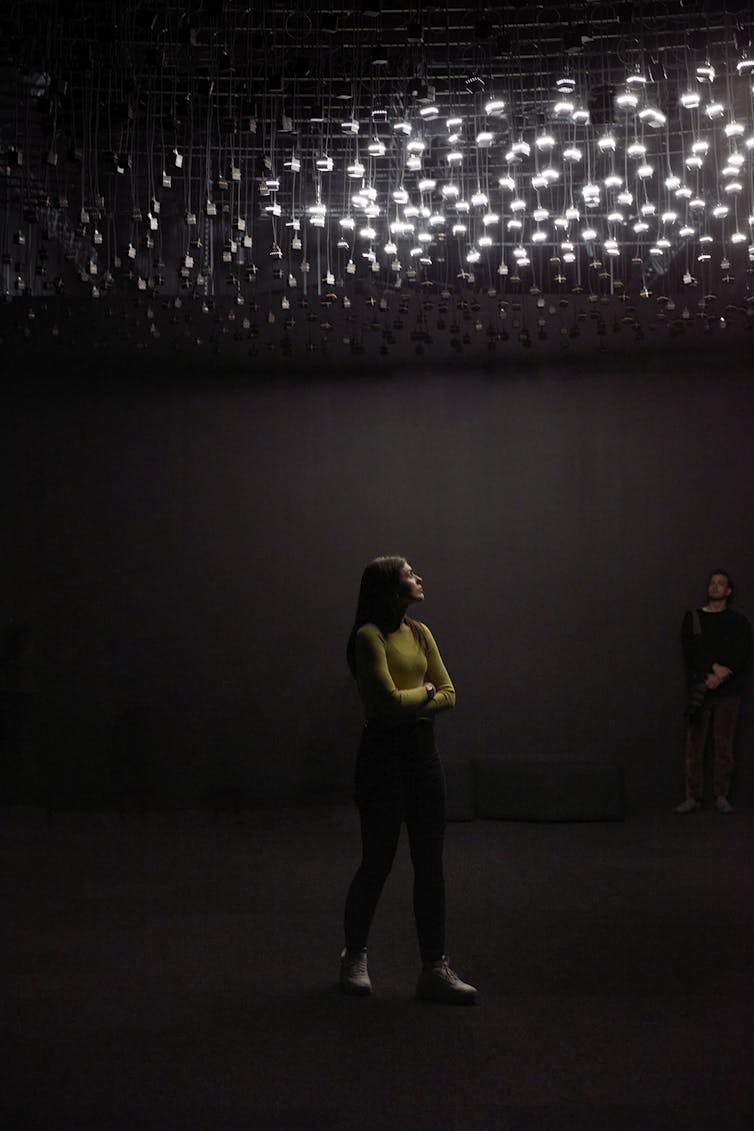
In a single different room, Topic Atmosphonia is a dynamic mild present accompanied by 3,000 completely completely different sound channels, along with space recordings of bugs and a complete bunch of types of birds. It is the complexity of the pure world transposed into the digital.
Take into consideration a murmuration of lights accompanied by sounds. Company stroll in confused patterns, in sync with the pulses of sunshine. Quite a few toddlers, enchanted by the sounds and lights, run frantically away from their mom and father and once more as soon as extra.
Misplaced connections
This Sydney mannequin of the current incorporates an eccentric variety of objects from the Museum of Utilized Arts and Sciences’ assortment.
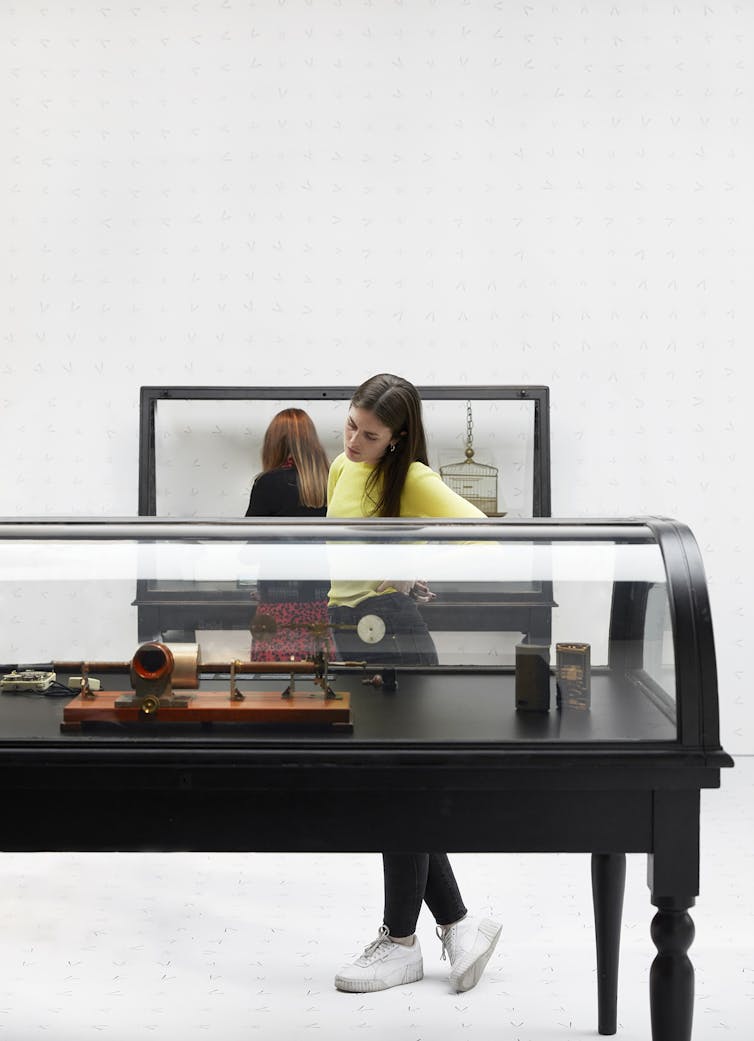
These objects embody a boomerang, two terrariums with crops and rocks, three glass-blown bush-plum shapes by artist Yhonnie Scarce and, throughout the foyer, a slow-moving photographic panorama of late-Nineteenth-century misty Blue Mountains from the gathering of Charles Kerry.
The connections between these assortment objects and Lozano-Hemmer’s work are onerous to know, apart from that every one of them hook up with the setting in different strategies … at a stretch. The inclusion of the boomerang and glass shapes smacks of First Nations tokenism.
Recreated, reformed and re-presented
The overarching idea for Atmospheric Memory is that voice activation and movie recording might be saved then endlessly recreated, reformed and re-presented to the viewers.
Lozano-Hemmer attributes the origins of this idea to British Nineteenth-century engineer and inventor Charles Babbage, who claimed good recollection is a calculation of the movement of all air molecules and may be rewound to reveal hidden voices.
Lozano-Hemmer has repositioned Babbage’s curiosity in psychic resonance and spirit reflection alongside his technological forecasting.
Be taught further:
What was the first laptop?
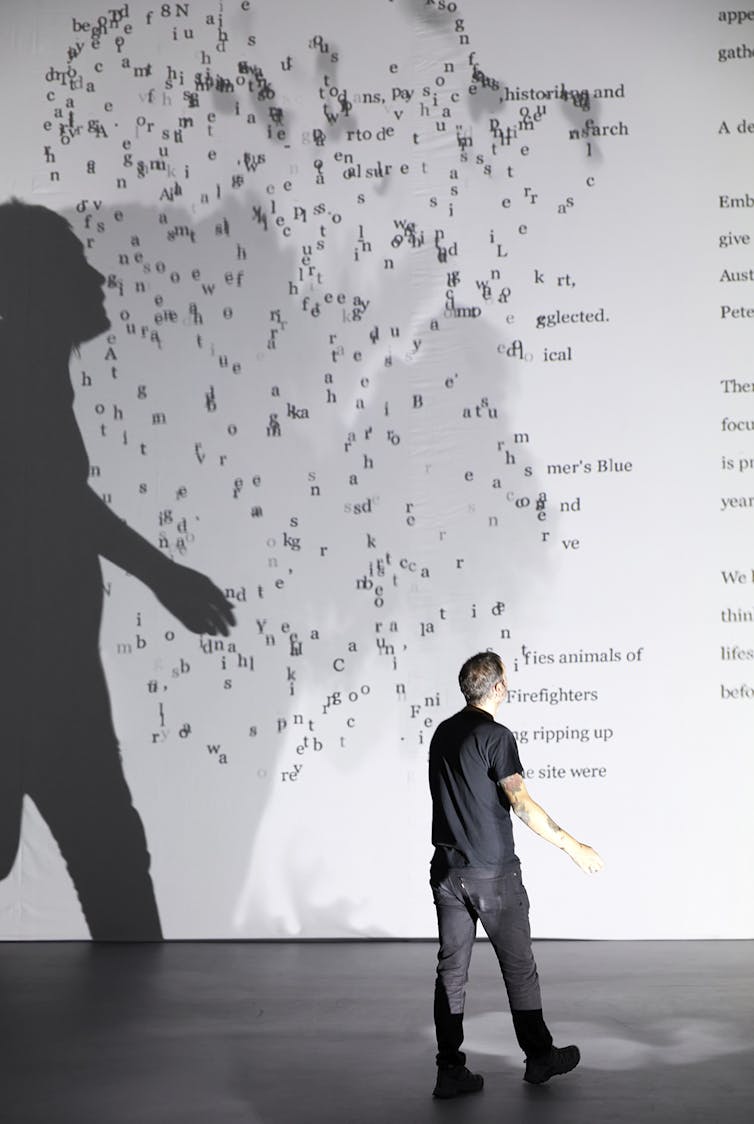
It is debatable that Babbage’s ideas really had been the precursor to the digital interconnection and uncanny surveillance methods of the twenty first century, as instructed by this exhibition. Nevertheless Babbage moreover fell for the late-Nineteenth-century mystic appeal to of life-death illusionismreplayed proper right here as a result of the digital/precise dichotomy.
Every elements (illusionism and know-how) are in play throughout the exhibition, nonetheless mustn’t resolved.
Nonetheless, the rooms had been full of households having enjoyable with the interactive elements. Even the youngsters who had been anxious about their stolen faces gave the impression to be having a pleasing time.
After mentioning the central downside of the current, the similar boy returned to the mic to shout “Bye!” as he scurried off after his mother.
Atmospheric Memory is on the Powerhouse Museum, Sydney, until November 5.
